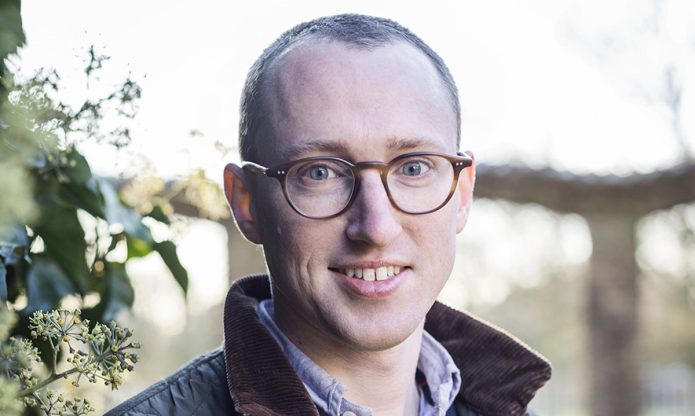Nature and evolution constantly change our genome. Some mutations are harmless, whereas others are harmful and can lead to hereditary diseases or cancer.
As researchers make greater use of genetic data to advance knowledge on diseases, the need for analytical tools to analyse the extremely large data sets that emerge from mapping the genome is growing.
The analytical tools for examining mutations have had gaps for many years, and Søren Besenbacher plans to rectify these based on a DKK 6.7 million grant from the Novo Nordisk Foundation under its ambitious Data Science Investigator Programme.
“This initiative of the Novo Nordisk Foundation is absolutely fantastic, because numerous large data sets with genetic information are being produced today. Having the right analytical tools is imperative to optimise the output from the data sets, and this project aims to develop these tools,” explains Søren Besenbacher, Department of Clinical Medicine, Aarhus University.
Models distinctly lacking
A challenge with the current analytical methods is that they are really good at analysing point mutations, in which one of the building blocks of the genome replaces another. Nevertheless, they are less proficient at analysing mutations when they are either new insertions of genetic building blocks or when building blocks have been removed.
The purpose of the project launched by Søren Besenbacher is to improve existing tools so that they can analyse several types of mutations and to include more information about each mutation. As part of the project, Søren Besenbacher will employ two PhD students and two postdoctoral fellows to work on solving the challenges.
“The opportunity to hire four new colleagues will enable me to develop my research further. But my group will still be small enough to enable me to be involved in all the research,” says Søren Besenbacher.
Major insight into the effects of mutations
Improved analytical models will enable researchers to much better understand mutations that cause both hereditary diseases and cancer.
Researchers can improve knowledge on why a handful of mutations in a specific gene cause hereditary diseases, whereas other mutations do not. We have to estimate probability: do mutations probably cause disease? The models may provide the answer.
Another example is that the models can be used to determine how important a specific gene is. If the gene accumulates far fewer mutations than the models predict, this suggests that the gene is extremely important, since evolution preserves it so well.
“The models strive to predict how many mutations are expected in a specific gene and then compare this with reality. This knowledge is relevant in evolution, disease and understanding the function and importance of individual genes,” explains Søren Besenbacher.
Research without distractions
Søren Besenbacher says that, even though he is already an associate professor and has an established research career, grants of the magnitude he has just received are extremely important for his further career. First, the ability to hire colleagues makes the work process more fluid. But that is not the only benefit.
“This means that I do not have to focus so much on applying for new grants for a while, because we have adequate funding for now. This means I can focus on research that can create results – without distractions,” concludes Søren Besenbacher.
Grants to seven researchers
The grant to Søren Besenbacher is one of seven new grants totalling DKK 62 million recently awarded by the Foundation through its Data Science Investigator Programme.
The grants are divided into the categories of Emerging Investigator, Ascending Investigator and Distinguished Investigator. The grants target research leaders at different career stages to support attractive career paths for talented specialists within data science.
The seven grant recipients
Emerging Investigator
- Shilpa Garg, Assistant Professor, Department of Biology, University of Copenhagen: Efficient, High-resolution Approaches for Integrative Sequencing Analysis of Complex Diseases – DKK 9,960,709
- Signe Marie Jensen, Assistant Professor, Department of Plant and Environmental Sciences, University of Copenhagen: Enhancing Statistical Methodology for Toxicophenomics: High-throughput and High-dimensional Data for Ecotoxicological Risk Assessment – DKK 9,225,108
- Jesper Madsen, Assistant Professor, Department of Mathematics and Computer Science, University of Southern Denmark, Odense: Islet Cartography – Multilayered Mapping of Islets of Langerhans in Health and Disease – DKK 8,790,602
- Niklas Pfister, Assistant Professor, Department of Mathematical Sciences, University of Copenhagen: CausalBiome: Developing a Unified Statistical Framework for Analysing Microbiome Data – DKK 9,812,255
Ascending Investigator
- Søren Besenbacher, Associate Professor, Department of Clinical Medicine, Aarhus University: Novel Methods to Model Mutational Processes in Germline and Cancer – DKK 6,705,000
- Morten Arendt Rasmussen, Associate Professor, Department of Food Science, University of Copenhagen: First Principal Models, Neural Networks and Functional Graphical Models for Defining Metabolic Capacity as a Tool for Personalized Nutrition (FOODTOP) – DKK 9,267,806
Distinguished Investigator
- Rasmus Pagh, Professor, Department of Computer Science, University of Copenhagen: Providentia: Privacy-driven Trust in Algorithms – DKK 8,410,068
This is the second time the Foundation has awarded grants through the Data Science Investigator Programme, which is part of the Foundation’s Data Science Initiative.
The Initiative was launched in 2019 and aims to broadly boost capacity within data science, including supporting the implementation of ambitious research programmes, establishing new national infrastructure, offering attractive career paths and educating and training more data science specialists. The Foundation has distributed nearly DKK 600 million through the Initiative. Read more here.
Further information
Christian Mostrup, Senior Programme Lead, Communications, Novo Nordisk Foundation, +45 3067 4805, [email protected]








